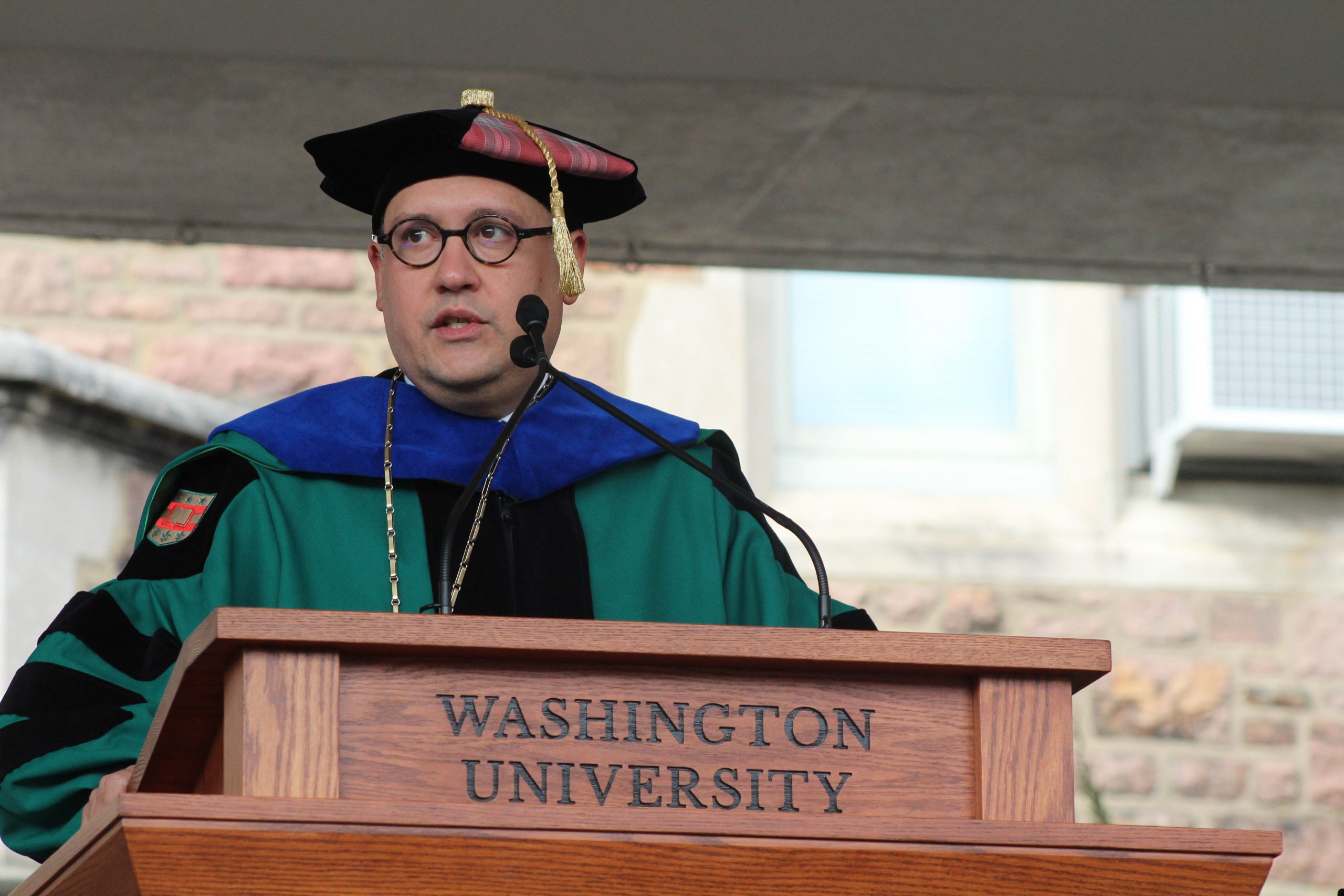News
WashU Pledge’s inaugural year supports five percent of first year students
The recent convocation of Washington University’s Class of 2024 marks the inauguration of a new admissions plan: the WashU Pledge.
In October 2019, Chancellor Andrew Martin announced the initiative to increase socioeconomic diversity on campus. Entailing a full scholarship to attend the University, the Pledge sought to provide low-income students in Missouri and southern Illinois a gateway to world-class higher education, part of a push toward increasing accessibility and diversity in the undergraduate body.
 Christine Watridge | Student Life
Christine Watridge | Student Life That same year began the first inaugural class of Pledge acceptances. In the Early Decision results of the 2019-20 application cycle, the University admitted 41 students eligible for the WashU Pledge scholarship.
Freshman Elise Thompkins said that she first heard about the Pledge in October 2019 when she was trying to decide where to apply to college.
“I hadn’t originally been planning on applying early decision to Wash. U. because I wasn’t sure if I’d be able to make the money work and I didn’t want to make that level of commitment without knowing about the money piece, but then once I heard about the Pledge scholarship I ended up applying ED 2,” she said. “And it really just made it so that Wash. U. was possible for me.”
Sophomore Nkemjika Emenike, Student Union diversity and inclusion committee chair, classified the Pledge as a perfect collaboration between the demands of Washington University’s student body and the University’s administration.
“I think students overall have acknowledged the lack of socioeconomic diversity as a problem at Wash. U.,” she said. “And I do think the work of student groups like Washington University for Undergraduate Socio-Economic Diversity and the Undergraduate and Graduate Workers Union indicate that.”
Emenike added that the administration’s efforts will likely only continue to grow in importance in the forthcoming years.
“I definitely believe that this trend towards finding more regional first-generation, low-income, but still high-achieving students will continue to bolster our student diversity,” she said.
According to published University reports in the early fall of this year, five percent of current freshmen are eligible for the Pledge. With an estimated $54 million in total scholarship valuation, the Pledge is a sign of financial commitment the University is making towards its undergraduate body. From 2013 to 2020, the number of Pell-eligible students at the University has increased by nearly 10%, and the Pledge is expected to continue the upward trend for future classes of students.
The Pledge is not the only recent initiative by Washington University to combat a lack of socioeconomic diversity within the Danforth community. In 2016, the Deneb STARS mentoring program for Pell-eligible and first-generation students began.
“As a Pledge scholar, I’m part of the Denebs program, which has just provided a ton of support for all of us,” Thompkins said. “We arrived on the first move-in day and then had programming all weekend just to get us ready for starting school at Wash. U. and also to share all the resources that we had. And then I have weekly meetings with one of the sophomores to just give advice, and that’s been really helpful to acclimate to the University.”
The initiation of programs like Deneb STARS was an instrumental start in combating socioeconomic inequity on campus, and the University has furthered its commitments to the local region through start-up and technology grants, a student success fund, other scholarships, and the Pledge. All of these are components of Chancellor Martin’s WashU Compact, a wide array of partnerships between the University and the communities around it.
Washington University’s continued push, both by the administration and students, towards a more inclusive community only hopes to tackle that perspective.
Thompkins believes that initiatives such as the WashU Pledge are a step in the right direction, although a significant amount of work remains for the University to attain a higher level of socioeconomic diversity.
“[The University is] definitely at a good starting point, but I think that there is much, much more to be done, because students of lower economic status are still a very small minority of the students here, even with the steps that they have already taken,” Thompkins said.
Coordinator for the Office of Student Success James Schisler did not respond to requests for comment
